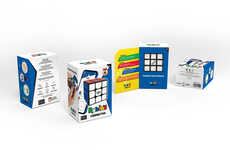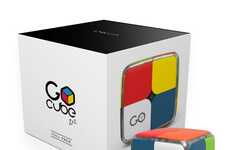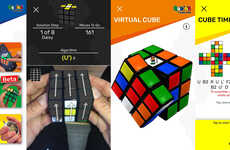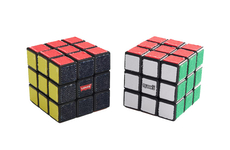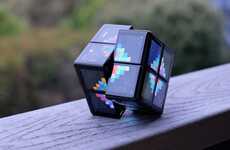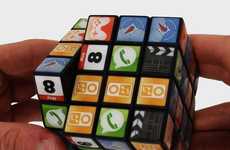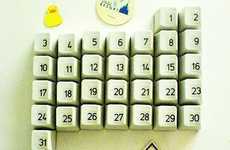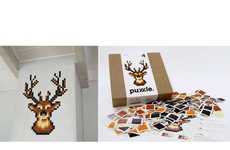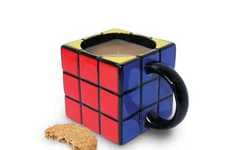
Rubik's Cubes Are Made for the Blind (UPDATE)
Tisah Tucknott — May 19, 2009 — Art & Design
References: idealist.blinkr.net
We previously brought you Rubik's Cube for the blind, but here is an updated and more stylish cube for those who are without sight.
The Rubik's Cube for the blind is a game that is shape-oriented instead of the traditional color-oriented cube. If you thought solving the Rubik's cube was hard, try doing it by touch only. Instead of using hand-eye coordination, the Rubik's cube for the blind promotes the use of hand-mind coordination.
Implications - Businesses that tailor their products so that a variety of individuals can use them will appeal to a wide audience. Consumers who endure a particular condition or disease will reward those businesses that omit this in the product and consumer interaction.
The Rubik's Cube for the blind is a game that is shape-oriented instead of the traditional color-oriented cube. If you thought solving the Rubik's cube was hard, try doing it by touch only. Instead of using hand-eye coordination, the Rubik's cube for the blind promotes the use of hand-mind coordination.
Implications - Businesses that tailor their products so that a variety of individuals can use them will appeal to a wide audience. Consumers who endure a particular condition or disease will reward those businesses that omit this in the product and consumer interaction.
Trend Themes
1. Sight-free Gaming - Creating games that rely on touch rather than vision opens up opportunities for inclusive and diverse gameplay experiences.
2. Shape-oriented Products - Tailoring products towards shape recognition rather than visual cues can create innovative solutions for people with visual impairments.
3. Hand-mind Coordination - Developing products that promote the use of hand-mind coordination can create unique and challenging experiences for users.
Industry Implications
1. Toy Industry - Innovating toys and games for people with visual impairments can create a more inclusive and diverse market.
2. Assistive Technology Industry - Creating specialized products that cater to specific disabilities can create valuable and life-changing solutions for those who rely on them.
3. Education Industry - Developing educational materials and tools that cater to the needs of students with disabilities can promote equitable learning opportunities.
3.1
Score
Popularity
Activity
Freshness

